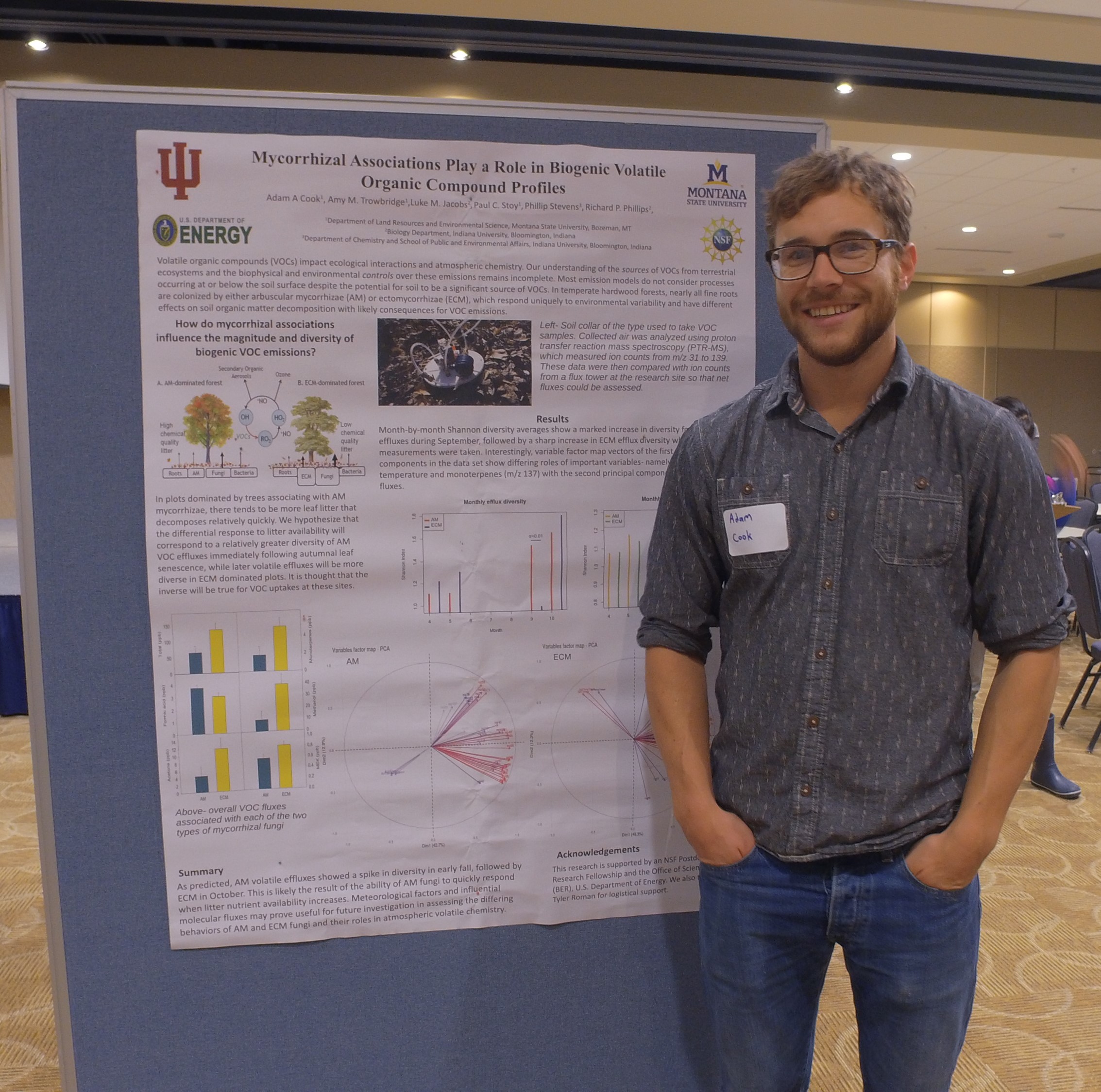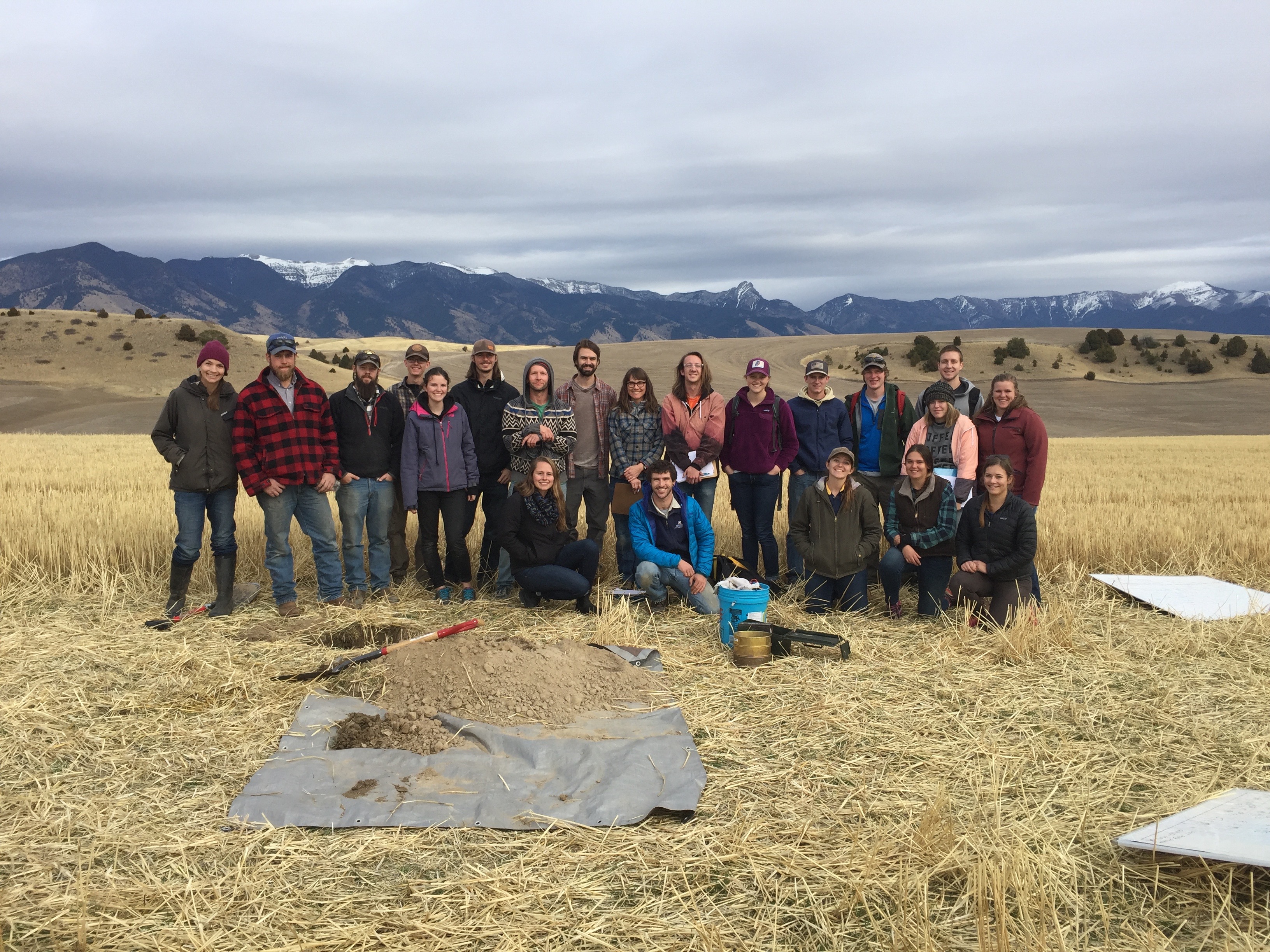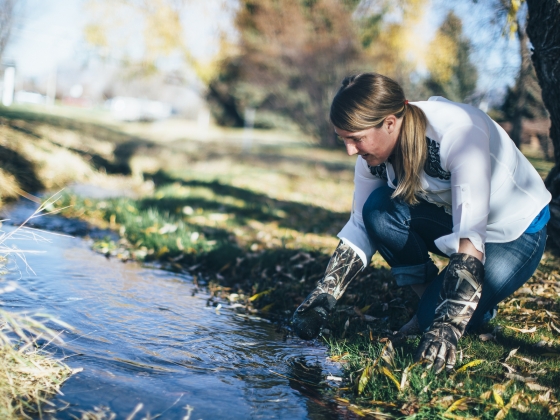Graduate Funding Opportunities
Nielsen Pedology Graduate Research Assistantship
Nielsen Pedology Graduate Research Assistantship: Recipients shall be graduate students providing research support to full-time faculty researching soil science. Gerald Nielsen and the soils faculty also agreed that the student's research must be focused on Montana Pedogenesis or basic understanding of Montana soils. Appropriate expenditures include, but are not limited to, tuition and stipends. Up to two Nielsen Graduate Research Assistantships shall be awarded each academic year for which funds and candidates are available. An assistantship may be renewed if funds are available, and if the recipient meets all of the requirements and continues to be the best candidate as determined by the Department Head.
Application Process: For a student to be eligible for the award, the student must fill out an application in Cat Scholarshis (due annually in February). Follow this link to apply: https://montana.academicworks.com. If awarded, the student will receive their payment in the form of a scholarship, as well as tickets to the Fall College of Agriculture Scholarship Banquet.
Current Awardee
FY23
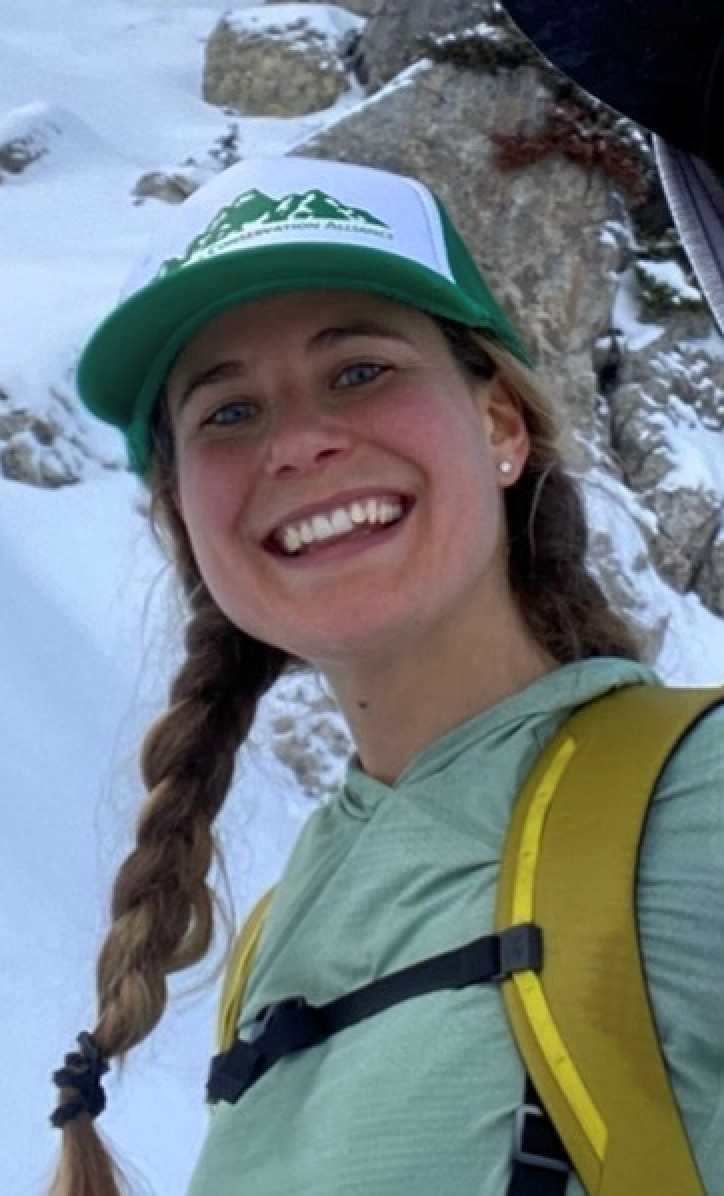
Evelyn (Sale) Rhodes
Ph.D. Ecology & Environmental Sciences
Advisor: Stephanie Ewing
My research considers how soil development and structure influences fate and transport of aqueous contaminants. I am particularly interested in the impacts that development, fertilization, and other human land uses on soil development and nitrate contamination of groundwaters. The Nielsen Pedology Research Assistantship will support development of a lecture and lab exercise for the Landscape Pedology course taught each year. These activities will focus on exploring how water moves through soils considering texture and structure. Students will delve into theory, math, and hands-on experiments relating the rate of water flux through soil to soil type. Learning about hydraulic head, hydraulic conductivity, and changing water content will be substantiated through calculations that allow us to infer unmeasurable soil characteristics. Through the combination of lecture, problem solving, and working with soil columns we will get insight about how soil layers and flow paths form and think about the water holding capacity of soils. All of this will come together to increase our interpretation of soil mapping and field observations.
I am interested in how these concepts can influence our collective thinking about fertilizer application, contaminant transformation, and drought resilience or vulnerability. This teaching exercise will lead to critical thinking about the significance of soils for protecting water quality and adaptively managing water scarcity.
FY22
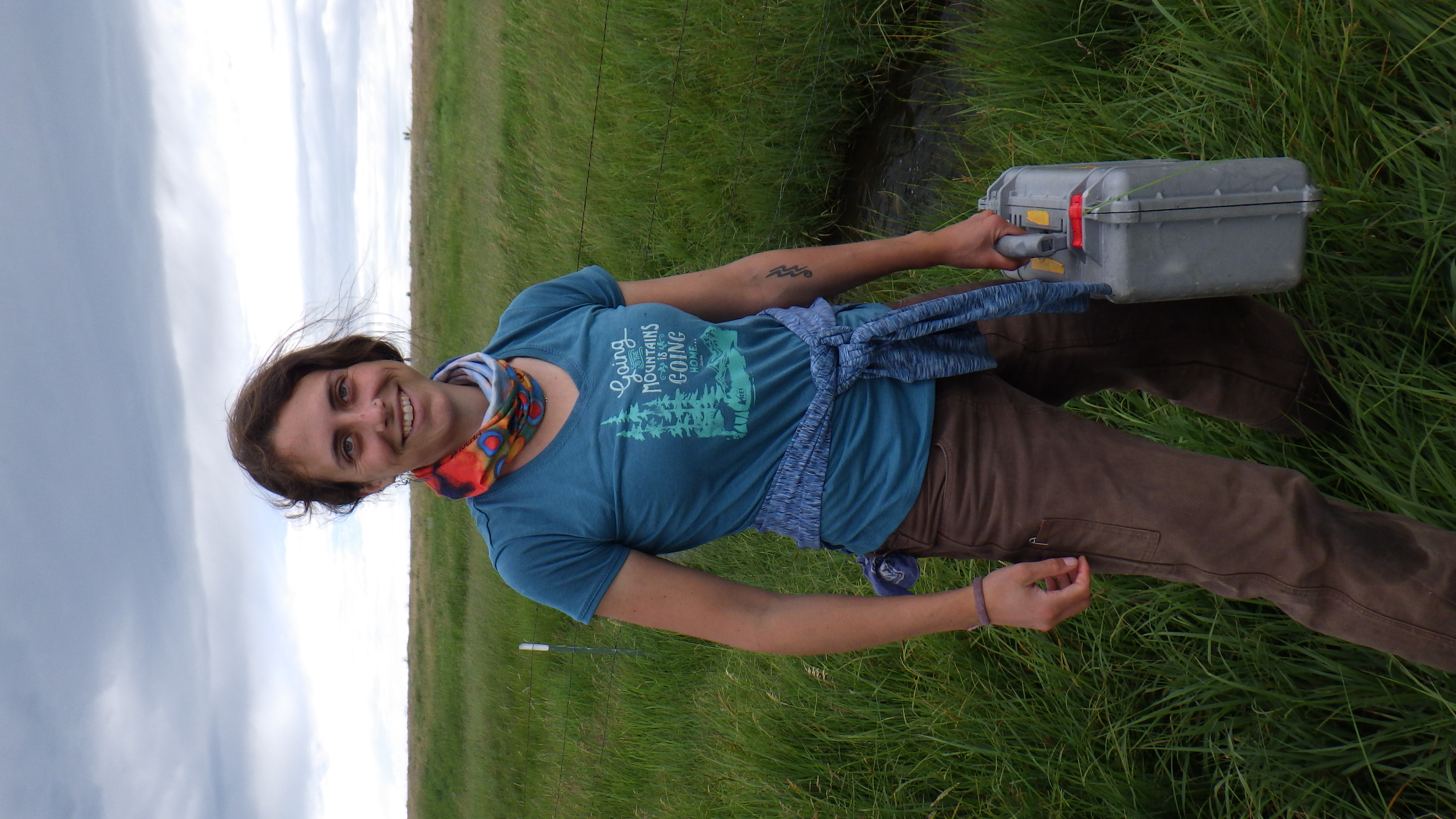
Caitlin Mitchell
Ph.D. Ecology & Environmental Sciences
Advisor: Stephanie Ewing
My research sits at the nexus of pedology, groundwater hydrology, and land use impacts emphasizing interdisciplinary and collaborative science. I am interested in how soil and water interactions influence subsurface solute transport and transformation. My graduate research investigates how the heterogenous distribution of soils across a landscape used for wheat cultivation and grazing dictates the spatial and temporal potential of biogeochemical reactions that transform and remove nitrate, specifically. In addition, I am working to better understand how hydrologic patterns through these soils determine where certain processes take place. I am particularly interested in unsaturated riparian soils where the relationship between hydrologic transport and biogeochemical processing of nitrate remains difficult to predictdespite widespread acknowledgement that soils of riparian areas act as buffer systems to streams carrying excess nutrient loads. My research employs various tools to observe spatial and temporal patterns and link these patterns to process to fundamentally understand key legacies and functions of soils in central Montana. My passion for investigating processes driven by soil – water interactions began while pursuing my B.Sc. in Environmental Science at Virginia Tech.
FY21

Kendall Wojcik
M.S. Land Resources & Environmental Sciences
Advisor: Stephanie Ewing
Assessing soil organic carbon cycling on semiarid grasslands using SOC inventories, C4 grass establishment, and d13C and d15N values
FY20
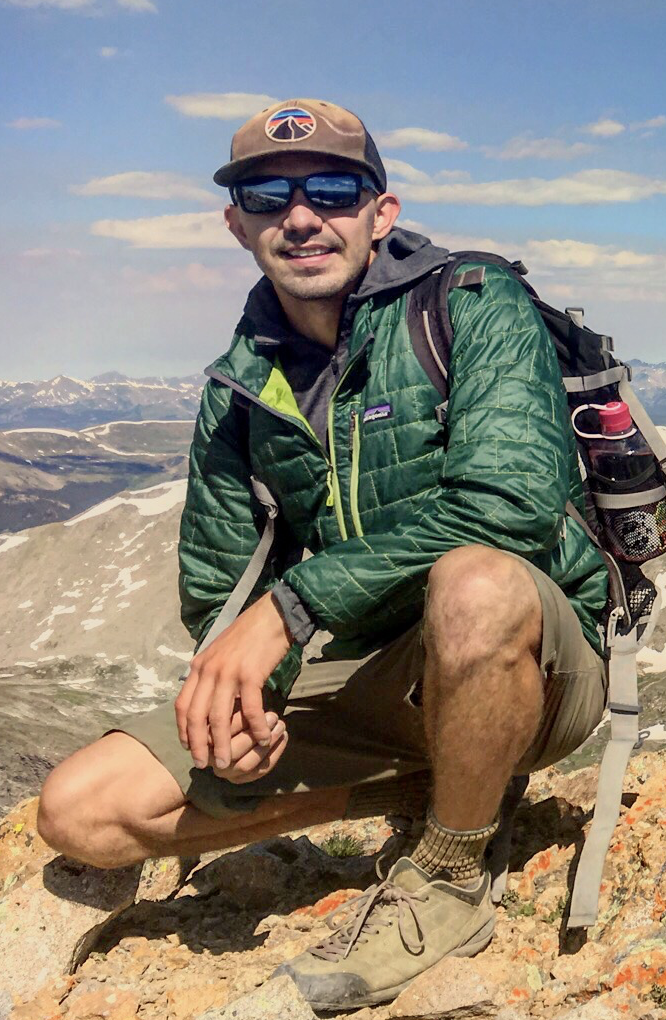
Justin Gay
Ph.D. Ecology & Environmental Sciences
Advisor: Jack Brookshire
Justin's research centers on terrestrial ecosystem ecology with an emphasis on better understanding how these systems work through a biogeochemical lens. He is interested in how global changes from modern human activity are altering geographically broad patterns of soil nutrient cycling, fluxes of greenhouse gases, and carbon storage. Justin's research seeks to improve our current understanding about the consequences from global changes (CO2 fertilization, atmospheric deposition, climate change, and shifts in disturbance regimes) and their impact on ecosystem structure and function that control biologically critical nutrient loss and retention. Justin integrates a number of approaches to answer research questions across different spatial and temporal scales including: field sampling and laboratory analysis, satellite imagery, ecosystem modeling, and stable isotope approaches. He is currently working on a diverse array of projects across a number of different ecosystems including: savannas in the northern great plains, tropical montane forests, agro-ecosystems, and subalpine grasslands. Justin holds a B.S in Environmental Science from Endicott College in Beverly, MA and a M.A in Science Curriculum and Instruction from the University of Vermont in Burlington, VT. He is starting the third year of his Ph.D. work under his advisor Dr. Jack Brookshire in Land Resources and Environmental Science at Montana State.
FY19

Briana Whitehead
M.S. Land Resources & Environmental Sciences
Advisors: Tony Hartshorn & Bill Kleindl
Briana's research is focused on riparian soil properties and riparian soil development in the Centennial Valley of southwest Montana. Her thesis will seek to address if increased floodplain connectivity introduced by stream restoration projects, such as Beaver Dam Mimicry, will lead to more hypoxic and anoxic conditions in Centennial Valley soils. Briana earned her B.S. in Environmental Studies with a minor in Biology from the University of Oregon in Eugene, OR.
FY18
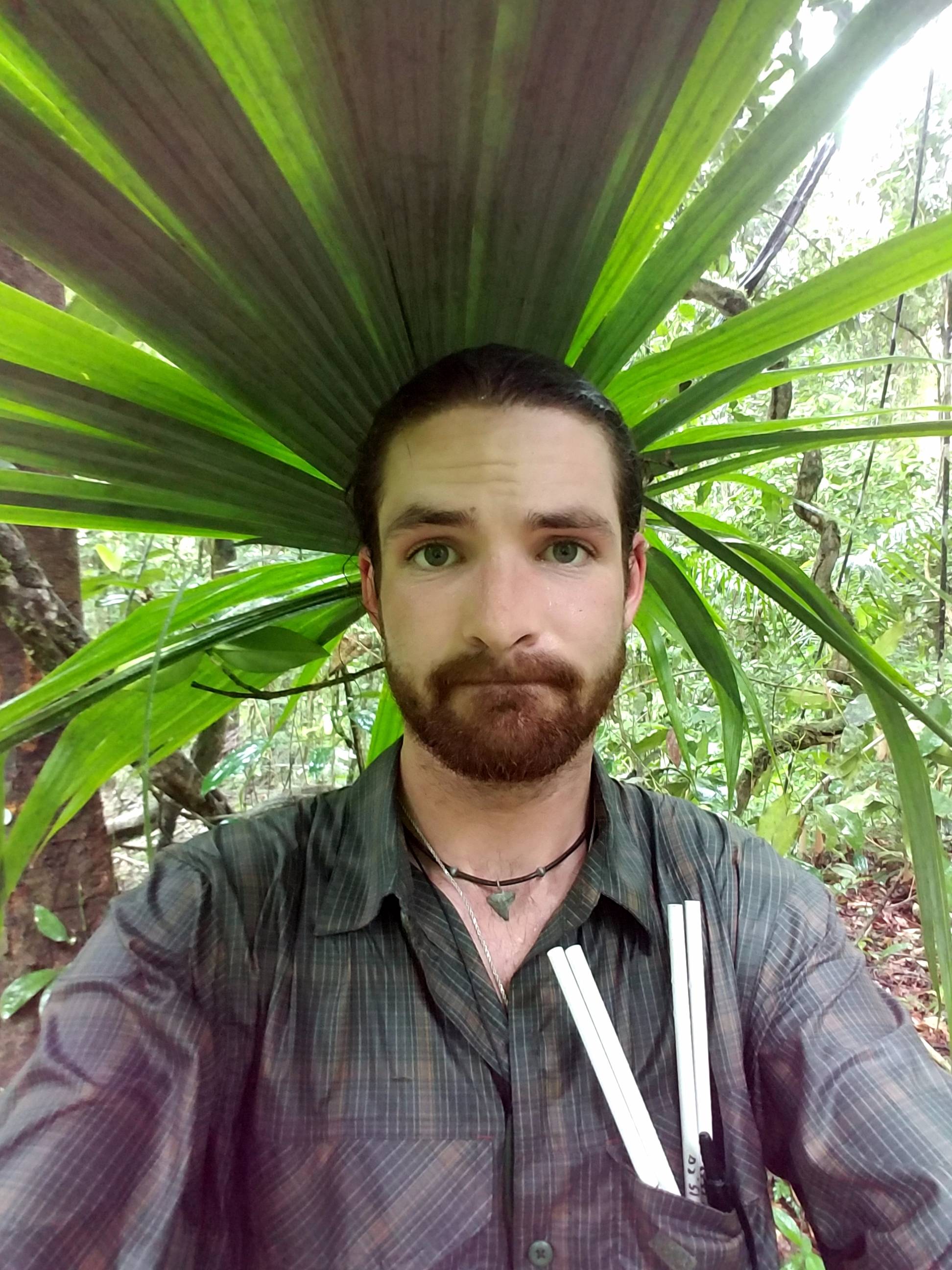
Bryce Currey
Ph.D. Ecology & Environmental Sciences
Advisor: Jack Brookshire
Bryce is interested in understanding how variation in soil physical properties and chemistry give rise to variation in soil-vegetation feedbacks and their response to precipitation and fire. His Ph.D. will collaborate with the BLM to investigate the effects of fire on soil properties and vegetation dynamics in a largely unstudied landscape in the Missouri and Musselshell River Breaks area of central Montana. Bryce earned his B.S. from Loyola Marymount University in Los Angeles, California as a Civil Engineering major focusing in Environmental Engineering with a minor in Applied Mathematics.
FY17
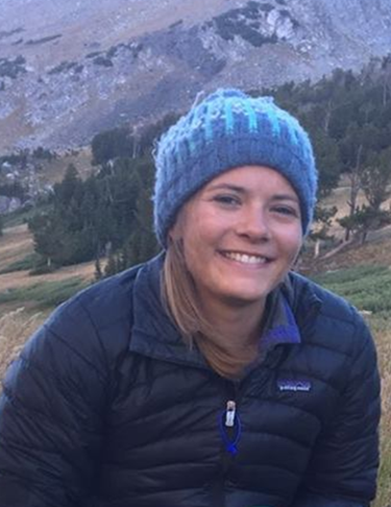
Florence Miller
M.S. Land Resources & Environmental Sciences
Advisor: Stephanie Ewing
Florence's M.S. thesis will investigate the sources of uranium contamination in drinking water on the Crow Reservation, including soil-derived pathways from the Pryor, Little Bighorn, and Bighorn drainages. Florence has been fascinated by pedology since her first soil science class while pursuing her B.S. in Soil Science at California Polytechnic State University, San Luis Obispo.
FY16
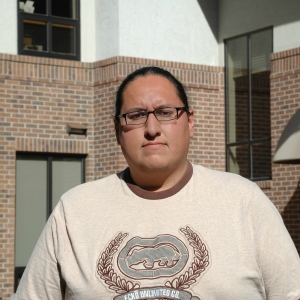
Joseph Old Elk
M.S. Land Resources & Environmental Sciences
Advisor: Stephanie Ewing
Joseph’s Master of Science thesis work will evaluate the water quality drivers at Plenty Coups Spring located in Chief Plenty Coups State Park just outside of Pryor, MT, focusing on identifying how soil structure affects water movement and E. coli and fecal coliform contamination. He will use soil observation and comparison to Judith soils (same series) to draw inferences about land use, soil process, and water quality connections to better understand groundwater contamination pathways. Joseph holds his B.S. in Geospatial Sciences from LRES.
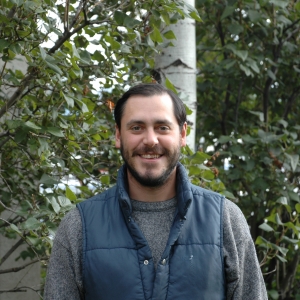
Scott Robinson
Ph.D. Ecology & Environmental Sciences
Advisor: Tony Hartshorn
Scott’s dissertation project will explore the potential for combining a pedological approach to identifying dominant soil processes and specialized bacteria capable of converting arsenic to less mobile and less toxic forms. Together, these approaches should improve efforts to establish plants and minimize human exposures to arsenic in this semi-arid Deer Lodge Valley. Scott’s background is in forest soils (Master’s degree from Michigan Tech) and soil mapping fieldwork in the Custer National Forest

